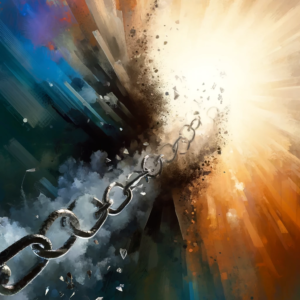Addiction recovery is a complex and deeply personal journey that involves confronting various emotional and psychological challenges. One of the most significant hurdles that individuals often face is the feeling of shame. At Sarasota Addiction Specialists, we understand how shame can entangle individuals in a cycle of addiction, making recovery more challenging. This blog explores the role of shame in addiction recovery and offers guidance on how to overcome it to pave the way for a successful healing process.
Understanding Shame in Addiction
Shame is a powerful emotion that involves feeling worthless, embarrassed, or humiliated. In the context of addiction, individuals might feel shame about their behavior while under the influence, the consequences of their addiction on their personal and professional lives, and the stigma associated with being labeled an addict. This shame can be a significant barrier to seeking help, as it often leads to isolation and a deep-seated feeling of unworthiness.
The Impact of Shame on Recovery
Shame can significantly impede the recovery process. It can prevent individuals from admitting they have a problem and seeking help. Once in recovery, shame can lead to self-sabotage or relapse if not adequately addressed. It is crucial to recognize that shame can stem from internal sources, like personal regret, and external sources, such as societal stigma. Understanding these sources can be the first step in addressing and overcoming shame.
Strategies to Overcome Shame in Recovery
- Open Communication: Engaging in honest conversations with therapists, counselors, and support groups can provide a safe space to express feelings of shame without judgment. At Sarasota Addiction Specialists, our therapists are trained to help clients work through these difficult emotions and develop healthier coping mechanisms.
- Education and Awareness: Understanding that addiction is a disease and not a moral failing can help mitigate feelings of shame. Educational programs that discuss the biological, psychological, and social aspects of addiction can help individuals and their families view addiction through a more compassionate lens.
- Building a Supportive Network: Surrounding oneself with people who understand the nature of addiction and provide unconditional support can be incredibly beneficial. Peer support groups, such as those offered at our center, allow individuals to connect with others who are facing similar challenges and who can relate to the experience of overcoming shame.
- Celebrating Milestones: Recognizing and celebrating each step forward in the recovery process can help rebuild self-esteem and reduce feelings of shame. Setting small, achievable goals and acknowledging their completion can reinforce a sense of accomplishment and worth.
- Therapeutic Interventions: Cognitive Behavioral Therapy (CBT) and other therapeutic approaches can effectively address the underlying issues related to shame. These therapies help reframe negative thoughts and promote a more positive self-image.
The Role of Professional Help
Professional help is crucial in effectively managing and overcoming shame in addiction recovery. At Sarasota Addiction Specialists, our team of experienced therapists and counselors provides personalized treatment plans that address both the psychological and emotional aspects of addiction. By tackling shame head-on, we help our clients move forward in their recovery journey with confidence and hope.
Shame is a common yet debilitating experience for many in addiction recovery. However, by understanding its impacts and actively working to overcome it through therapy, support groups, and self-care, individuals can make significant progress toward recovery. Remember, overcoming shame is not just about healing from addiction; it’s about reclaiming your life and self-worth.
If you or someone you know is struggling with addiction and the burden of shame, don’t hesitate to reach out for help. At Sarasota Addiction Specialists, we are here to support you every step of the way. Contact us at (941) 444-6560 or visit our website at www.sarasotaaddictionspecialists.com to learn more about our services and how we can help you on your journey to recovery






